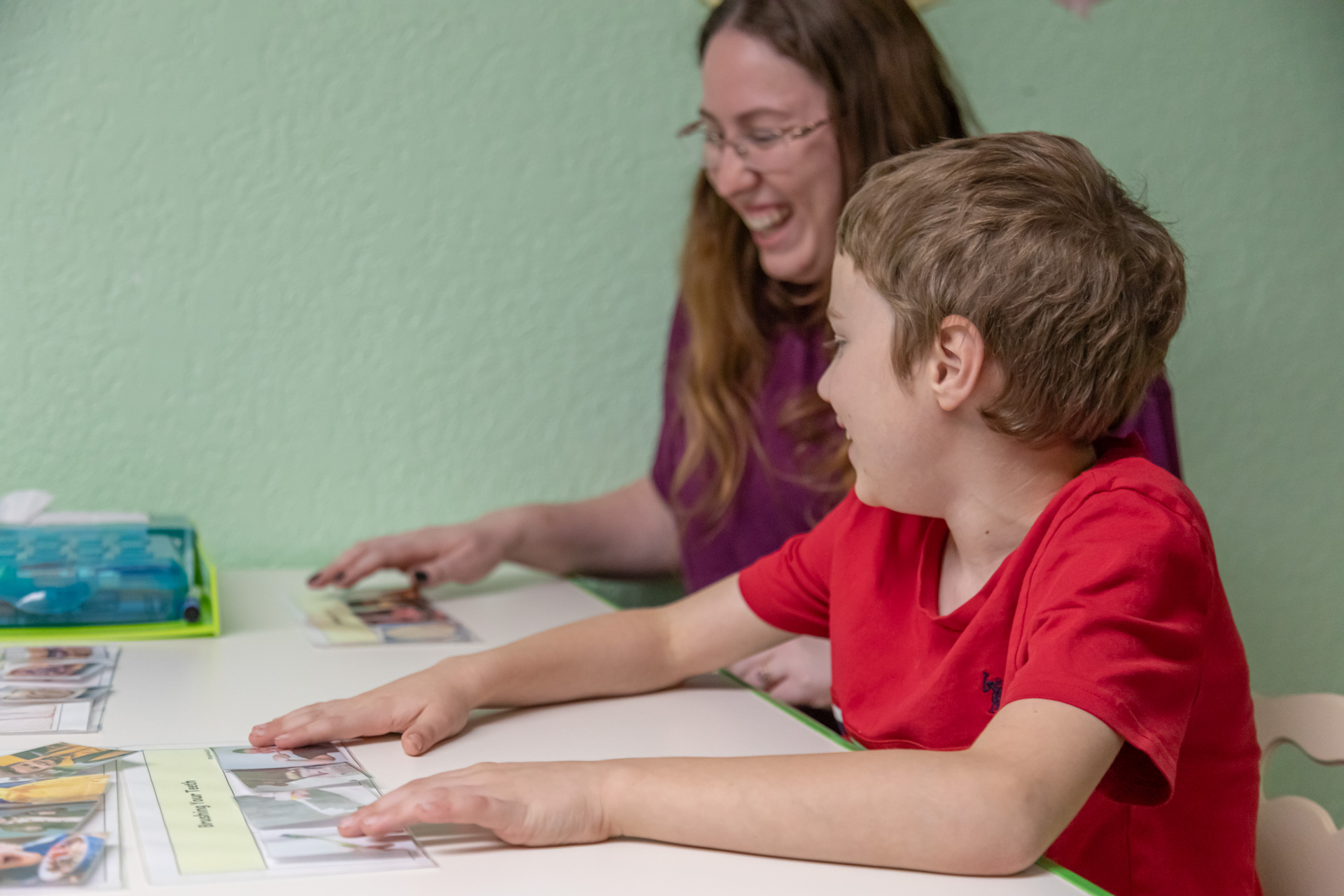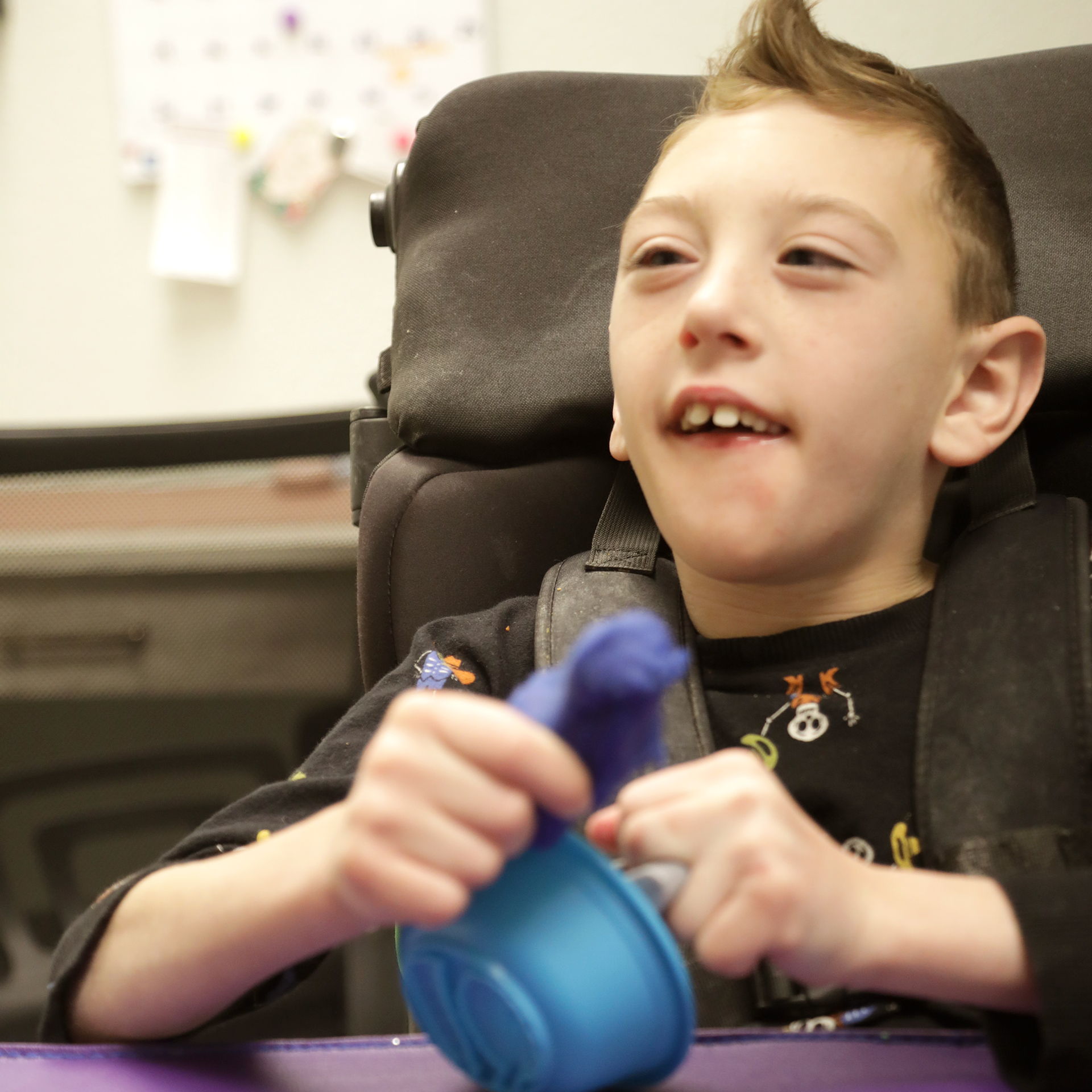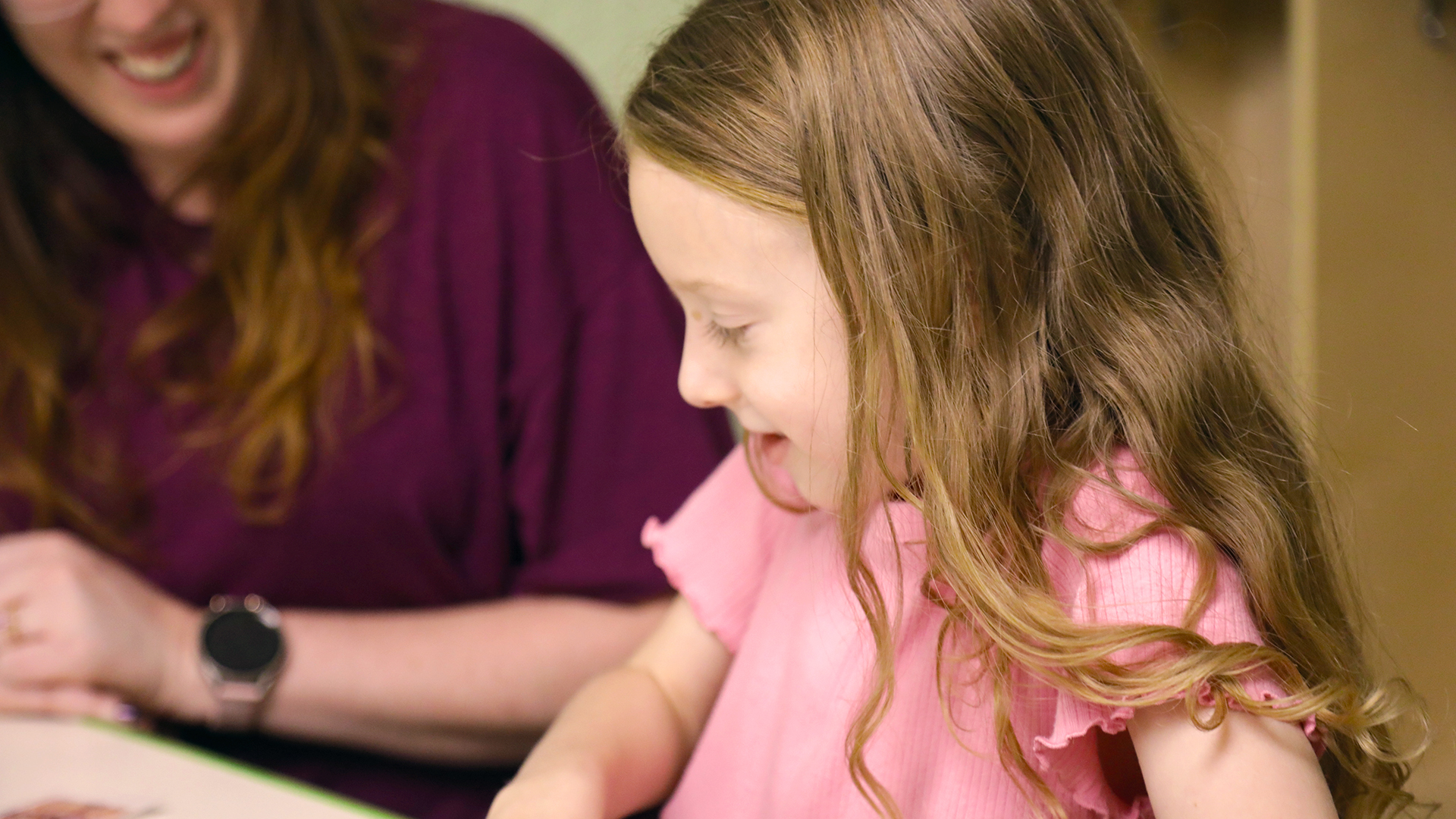The Impact of ABA Therapy on Social Skills Development


Exploring ABA Therapy's Influence on Social Skills
Applied Behavior Analysis (ABA) therapy is at the forefront of interventions designed to enhance the social skills of individuals with Autism Spectrum Disorder (ASD). With its structured and evidence-based approach, ABA therapy focuses on teaching and reinforcing positive behaviors while addressing the unique social communication challenges faced by those with autism. In this narrative, we delve into the methodologies, benefits, and outcomes of ABA therapy in cultivating essential social skills.
How ABA Therapy Transforms Social Interaction for Children with Autism

How does ABA therapy improve social skills in children with autism?
ABA therapy enhances social skills in children with autism through structured, evidence-based techniques. It focuses on improving communication and interpersonal interactions, essential for forming meaningful relationships. By prioritizing the understanding of non-verbal cues such as body language and facial expressions, children learn to interpret social contexts more effectively.
Key strategies in this approach include:
- Discrete Trial Training (DTT): Complex skills are broken down into simple steps, each taught incrementally.
- Natural Environment Training (NET): Skills learned in a therapeutic setting are practiced in real-life scenarios, helping children apply what they have learned.
What role does modeling and role-playing play in skill acquisition?
Modeling and role-playing are fundamental techniques in ABA therapy. Through modeling, therapists demonstrate appropriate social behaviors, providing children with clear examples to emulate. Role-playing allows children to experiment with these behaviors in a supportive environment, such as practicing how to start a conversation or maintain eye contact.
This practice facilitates:
- Improved comfort in social situations
- Enhanced ability to navigate social interactions
- Confidence building through repeated, guided practice
How is feedback and reinforcement utilized in ABA therapy?
Positive reinforcement is a cornerstone of ABA therapy, where children are rewarded for demonstrating targeted social skills. This method encourages the continuation of desired behaviors. Children receive consistent feedback that helps them understand the effectiveness of their actions, reinforcing lessons learned during therapy sessions.
Overall, ABA therapy equips children with essential tools to foster better communication and social understanding, significantly enhancing their social interactions and quality of life.
Defining the Goals of Social Skills Programs in ABA Therapy

What are the goals of social skills programs in ABA therapy?
The primary aim of social skills programs in ABA therapy is to enhance children’s ability to engage in meaningful interactions across various social settings. These programs prioritize individual goals tailored to the specific needs of each child, rather than simply pushing for conformity to social standards.
To achieve these outcomes, the programs meticulously break down complex social skills into manageable, teachable components. This approach employs Behavioral Skills Training, consisting of stages like explanation, modeling, guided practice, and feedback. Each component is designed to facilitate understanding and retention of social skills.
Goals within these initiatives are crafted to be specific, observable, and measurable. An example might be the objective for a child to ‘reciprocate greetings from peers,’ which allows for effective tracking of the child’s development through pre- and post-assessments.
Components of Behavioral Skills Training
Behavioral Skills Training consists of several key parts:
- Explanation: Introducing the specific skill to be learned.
- Modeling: Demonstrating the skill to show what successful execution looks like.
- Guided Practice: Providing opportunities for the child to practice the skill under guidance.
- Feedback: Offering constructive insights to improve performance.
This structured approach ensures that each session is not only informative but also engaging, keeping the child’s interest at the forefront.
Measurement of progress in ABA therapy
Tracking progress involves ongoing assessments to measure improvements. This continuous evaluation helps in refining the curriculum based on the specific progress made by each child. Thus, parents and therapists can identify which strategies foster better learning outcomes.
Incorporation of Values-Based Methods
Values-based methods play a significant role in these programs by aligning the social skills learners develop with their individual values and priorities. Integrating approaches such as Acceptance and Commitment Therapy invites children to connect their social skills to their personal beliefs, promoting not just skill acquisition but also psychological flexibility. This alignment is crucial as it fosters meaningful interactions and encourages confidence during social engagements.
In summary, social skills programs in ABA therapy are a vital tool for helping children with ASD to interact successfully and independently in their communities.
The Broader Social Significance of ABA Therapy

What is the social significance of ABA therapy?
ABA therapy plays a crucial role in improving the quality of life for individuals, especially those with autism and other developmental disabilities. By utilizing evidence-based methods of behavior analysis, ABA not only focuses on behavioral modification, but also fosters essential communication and social skills.
Individuals undergoing ABA therapy can develop the tools necessary for deeper social interactions, which significantly contributes to their independence. Skills such as initiating conversations, understanding social cues, and engaging in group activities are nurtured, allowing them to actively participate in their communities.
Empowerment through behavior modification
ABA therapy empowers individuals by teaching new behaviors tailored to their unique strengths and challenges. This individualized approach, focusing on positive reinforcement, helps children boost their confidence while reducing problematic behaviors. As children progress through structured goals, they gain not just skills, but a sense of control over their interactions and experiences.
Promotion of neurodiversity and inclusion
The practice of ABA therapy also promotes understanding and acceptance of neurodiversity. By improving social skills and communication, the therapy supports societal integration and encourages inclusion. As individuals with autism become more adept in various social settings, it helps foster a climate of empathy and understanding, leading to stronger community ties.
Studies show that enhancements in social functioning related to effective ABA interventions can lead to significant improvements in both quality of life for the individuals and the overall societal landscape they inhabit.
Understanding the Impact of Autism on Social Skills

How does autism affect social skill development?
Autism spectrum disorder (ASD) profoundly impacts the development of social skills. This is primarily because individuals with ASD frequently experience challenges in social communication and interaction.
For many, interpreting social cues such as facial expressions or body language proves to be a significant hurdle. During conversations, they might struggle to maintain reciprocity or establish friendships, often feeling isolated. Early signs of ASD may include delayed speech, difficulty with eye contact, and notable challenges in responding appropriately to social signals.
However, effective interventions, particularly Applied Behavior Analysis (ABA), can significantly enhance these skills. ABA provides structured techniques to teach individuals how to navigate various social situations. These techniques include breaking complex skills into smaller, manageable steps and utilizing behavioral modeling for better understanding.
Additionally, fostering inclusive environments through community support and raising awareness can lead to enhanced opportunities for individuals with autism. When communities become more aware and accommodating, they facilitate meaningful participation in social interaction, which is crucial for improving social skills.
This holistic approach not only aids in the development of social skills but also builds self-confidence, ultimately helping individuals with ASD connect better with others and reduce feelings of social anxiety.
Key Techniques in ABA Therapy for Social Skills Enhancement

Description of Discrete Trial Training (DTT) and Natural Environment Training (NET)
ABA therapy employs various techniques to improve social skills, with Discrete Trial Training (DTT) and Natural Environment Training (NET) being two prominent methods.
- DTT involves breaking down complex skills into smaller, manageable steps, making them easier for children to learn. This structured approach helps children understand and master each component of a social skill.
- NET, on the other hand, promotes learning in authentic environments. It encourages children to practice their skills in natural settings, facilitating generalization and application of learned behaviors in real-life situations.
Use of Positive Reinforcement
Positive reinforcement is a cornerstone of ABA therapy. It involves rewarding children for demonstrating target social skills, which increases the likelihood of those behaviors being repeated. This technique not only motivates children but also boosts their self-confidence as they witness their progress.
Importance of Tailored Interventions
Tailored interventions play a crucial role in the success of ABA therapy. Each child's unique strengths and needs are assessed to create an individualized plan, ensuring that the skills taught directly address their social challenges. This personalized approach increases engagement and effectiveness, setting the stage for meaningful social interactions.
In summary, the combination of DTT, NET, positive reinforcement, and individualized strategies forms a comprehensive ABA therapy framework that significantly enhances social skills in children with autism.
The Benefits and Outcomes of ABA Therapy on Social Behavior
Research findings on ABA therapy outcomes
The research conducted in Wuhan focused on the effects of Applied Behavior Analysis (ABA) in enhancing emotional and social skills in children with Autism Spectrum Disorder (ASD). The study identified that ABA significantly improves multiple aspects of social skills through structured, individualized interventions, which include behavioral modeling, role-playing, and positive reinforcement strategies.
Statistical improvements in social and communication skills
Statistical analysis of the experimental group demonstrated notable advancements. For instance, post-intervention results indicated an average score of 23.95 in social skills and 23.50 in communication skills. The improvement was significant compared to the control group, showcasing effective intervention strategies in real settings (p < 0.05).
Long-term benefits for children with autism
The benefits of ABA therapy go beyond short-term improvements. By focusing on skills necessary for effective communication, emotional understanding, and social engagement, children not only enhance their ability to interact with peers but also gain self-confidence, contributing to better academic success and social inclusion over time. Structured social skills training fosters independent living by equipping children with the tools to navigate various social settings successfully, thereby improving their overall quality of life.
| Aspect of Development | Pre-Intervention Scores | Post-Intervention Scores | Improvement Indicator |
|---|---|---|---|
| Social Skills | Variable | 23.95 | Significant (p < 0.05) |
| Communication Skills | Variable | 23.50 | Significant (p < 0.05) |
| Long-term Independence | Varied | Higher Level of Engagement | Improved Quality of Life |
Addressing the Challenges of Generalizing Skills Learned in ABA Therapy
Importance of Skill Generalization
Generalizing skills learned during ABA therapy is crucial for ensuring that children with Autism Spectrum Disorder (ASD) can apply what they've learned outside of therapeutic settings. The aim is for these skills to transfer into everyday interactions, enabling children to engage more effectively with peers and family members in real-world scenarios.
Strategies to Ensure Real-Life Application of ABA Therapy
To support skill generalization, ABA therapists employ various strategies, including:
- Natural Environment Training (NET): Teaching skills in the context in which they will be used, such as during playdates or family gatherings.
- Role-Playing: Practicing different social scenarios to build comfort and competence before real-life application.
- Visual Aids: Utilizing schedules or cue cards to reinforce learned skills, ensuring clarity and understanding in various interactions.
Ongoing Development of Social Skills
The journey of social skills development is continuous. As children grow and encounter new social situations, ongoing reinforcement and practice of skills taught in ABA therapy are necessary. This may involve regular check-ins with therapists, refresher sessions, and parental involvement to ensure these skills evolve and adapt to the child’s changing environment.
Practical Applications in ABA Therapy for Social Skills
Role of Structured Play and Visual Aids
Structured play sessions form an essential part of ABA therapy, allowing children to practice vital social skills in a safe and supportive environment. These sessions provide opportunities for sharing, turn-taking, and social engagement facilitated by therapists. Moreover, tools like visual aids—schedules, cue cards, and charts—reinforce understanding and retention of learned skills, making the expectations clear and manageable for children.
Implementation of Role-Playing and Social Stories
Role-playing is another effective technique used in ABA therapy to enhance social skills. It allows children to simulate real-life scenarios, practice responses, and develop confidence in their ability to interact socially. Additionally, Social Stories serve as a valuable resource for educating children on appropriate social behavior and expectations within different contexts. These narratives help reduce anxiety and improve preparedness for social situations.
Enhancing Interactive Social Experiences
To promote social development further, ABA therapy incorporates activities that encourage interactive social experiences. Techniques such as positive reinforcement are employed to reward children for displaying target social behaviors. This recognition not only boosts self-confidence but also encourages the repetition of desirable interactions, thereby fostering higher levels of engagement and connection with peers.
By systematically integrating these practical applications, ABA therapy effectively enhances social skills and supports children in navigating social environments more successfully.
Harnessing the Potential of ABA Therapy for Social Growth
The transformative impact of ABA therapy on social skills development for individuals with autism is both profound and multifaceted. Through tailored interventions and evidence-based practices, ABA offers a structured pathway for individuals to enhance their social communication, emotional understanding, and everyday interactions. These skills are not just pivotal for personal advancement but also for meaningful societal engagement. As ABA therapy continues to evolve, it remains a cornerstone in empowering individuals with autism to lead more inclusive and enriched lives.
References
- The effectiveness of applied behavior analysis program training on ...
- How ABA Therapy Helps With Social Skills
- Enhancing Social Skills Through ABA Therapy
- ABA Therapy's Impact on Social Skills
- ABA Therapy for Social Skills Development
- Effectively Teaching Social Skills in ABA
- Episode 155: Teaching Social Skills in ABA
Recent articles

What to Expect at Your First Therapy Session
Discover what your child’s first therapy session looks like, from rapport building to goal setting, and how families can feel confident starting care.

Celebrating Small Wins: How Therapy Helps Kids Build Confidence All Year Long
Learn why small wins in therapy matter, how they boost your child’s confidence, and simple ways families can celebrate progress all year long.

Empowering Missoula Children to Grow With Confidence and Connection
Learn how ABA therapy in Missoula helps children build communication, independence, and confidence through personalized, family‑centered support at Advanced Therapy Clinic.

Compassionate Pediatric Therapy in Butte, Montana
A welcoming place where every child’s potential is celebrated

How Pediatric Therapy Helps Kids Thrive across Montana and Wyoming
A supportive guide for families exploring therapy options in Billings, Butte, Missoula or Sheridan.

How to Choose the Right Pediatric Therapy Clinic in Billings, Montana
A Parent‑Friendly Guide To Finding The Best Support For Your Child

